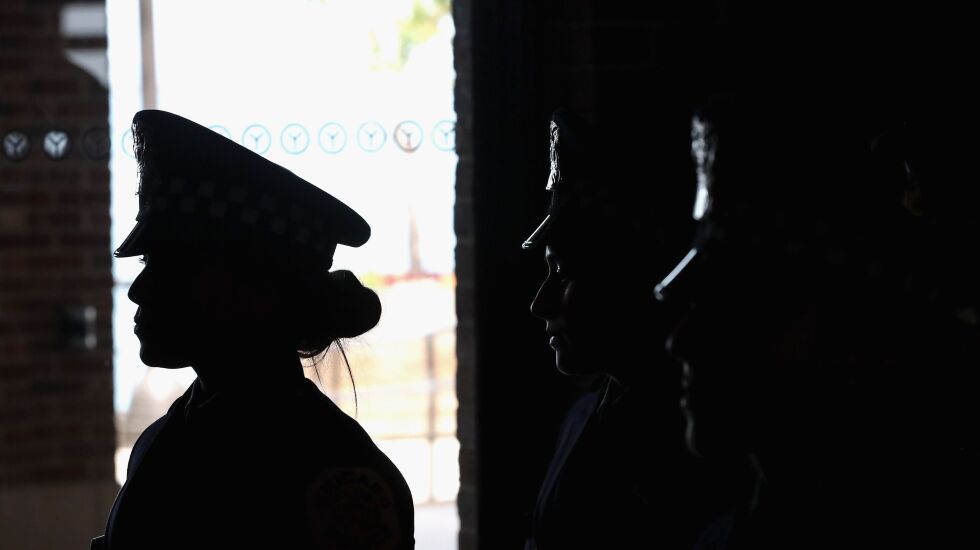
Judge Robert Dow offered a modest directive in 2019 as he set in motion a federal consent decree ordering the Chicago Police Department to make sweeping reforms in the wake of 17-year-old Laquan McDonald’s death at the hands of a patrol officer.
“Let us begin,” he wrote.
A new chapter began Tuesday as Dow handed over the gavel to Judge Rebecca Pallmeyer after he was tapped to be Chief Justice John Roberts’ chief of staff. During a court hearing, Dow reflected on his work on the consent decree, which he called “the most challenging, the most vexing, the most time-consuming and, in many ways, the most rewarding case that I’ve had in my 15 years on the bench.”
While the police department has earned some form of compliance with nearly 73% of the sections in the decree, the lengthy hearing at the Dirksen Federal Courthouse was dominated by continued concerns over biased and unconstitutional police practices and accounts of abusive encounters.
“Racist and violent policing, unfortunately, despite the consent decree, is still the norm being experienced by people on the ground in the city,” said Alexandra Block, an attorney with the ACLU of Illinois.
Her organization is part of a community-based coalition that gave up civil rights lawsuits as part of the consent decree. The order was issued after former Illinois Attorney General Lisa Madigan sued the city over the killing of McDonald, who was shot 16 times by former Officer Jason Van Dyke.
Amanda Anholt, counsel for the coalition and the senior attorney for Equip for Equality, a disability rights organization, said the consent decree expanded the police department’s crisis intervention program to include people with disabilities, along with those with mental health issues.
Yet the police department has only reached preliminary compliance — the lowest level — with fewer than a third of the sections dealing with the invention program, Anholt said.
“The impacts have been devastating,” she added. “Despite some small, new programs that answer a very small percentage of the calls, people with mental illness whose families call to try to get help all too often are injured, shot or end up in jail.”
Mary Grieb, deputy bureau chief at the attorney general’s office, complained that several critical units in the police department are understaffed and urged the city to finalize six policies that are “long overdue,” including those dealing with sexual misconduct and mandating officers to wear body-worn cameras in compliance with state law and the decree.
Creating policy is the first step of the consent decree, followed by training officers and ensuring policies are implemented in the field.
“Getting to this point has been far harder than it should have been” Grieb said. “The city and CPD have consistently resisted common sense policy changes proposed by our team, the monitor and the community members with whom CPD must engage.”
The criticism — underscored by personal accounts of officers needlessly using force and conducting wrongful raids — came after city officials touted the police department’s progress. They offered details on programs that integrate mental health professionals into the emergency response system and divert people found with drugs away from the criminal justice system.
Jennifer Begby, the city’s deputy corporation counsel for public safety reform, highlighted the more than 80 policies that have been written or revised. Begby estimated the police department will reach 78% compliance in the next reporting period, which ended in June and is expected to be detailed in a report by the court-ordered monitor.
The monitor, Maggie Hickey, said the police department needs to incorporate public input while drafting policies, warning also that “reduced staffing has reduced the city’s and the CPD’s ability to engage with the Chicago communities, demonstrate compliance with consent decree and promote trust and officer wellness.”
Hickey’s comments follow Police Supt. David Brown’s controversial decision to fire the department’s reform chief after he complained about deep cuts to his office. “It is clear that change is difficult,” she said. “But nevertheless, we press on. It’s what the Chicago communities expect and deserve.”







